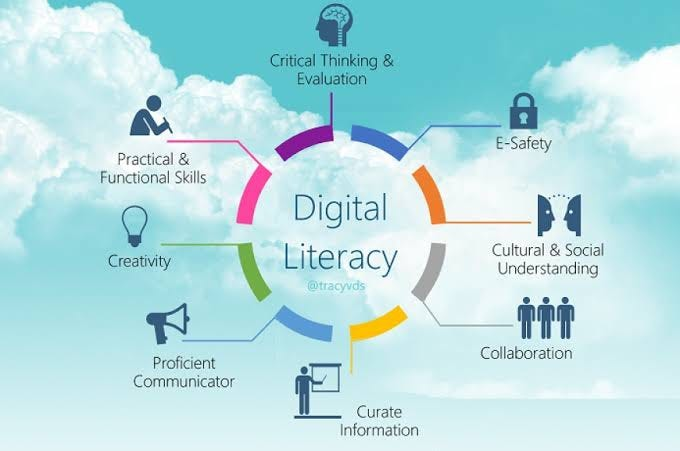Digital Literacy- Emotional and Social Well-Being While Advancing Through Technology
- DigiLit

- Jul 10
- 3 min read
By: Richa, Uditi, Rachel
Date: 30th October 2024
In today's world, digital literacy is not only a valued talent; it is a requirement. It is not just about using technology, it’s about understanding it to empower yourself to shape the future. So, technology is no longer a choice as it has become a necessity for individuals. As technology permeates every aspect of our lives, we must learn not just how to use digital tools efficiently, but also how to deal with the emotional and social consequences of this integration. As a result, digital literacy entails weighing the advantages of technology against the risks to one's mental health and interpersonal connections. Cultivating digital literacy allows us to leverage technology's benefits while protecting our emotional and social well-being.
Social and Emotional well-being in the Digital world:
Modern technology's constant connectivity brings undeniable convenience but can also impact emotional well-being. Research shows that excessive screen time and prolonged social media use can lead to digital fatigue, anxiety, and decreased self-esteem. Digital literacy empowers individuals to monitor their screen time and curate their digital environment and foster an awareness of these effects, enabling users to set limits and establish healthier tech habits. Emotionally intelligent digital users understand that what they engage with online can affect their emotional states. By practicing digital literacy, individuals learn to mindfully select content and engage in interactions that bring value rather than stress. Developing the ability to handle online criticism and negativity is crucial. Emotional resilience in digital spaces requires learning to respond calmly and disengage when necessary.
Cyberbullying and online harassment are unfortunate realities of the internet. Digital literacy helps users recognize toxic behavior, know how to report it, and set boundaries to protect their mental well-being.
Ethical usage of digital literacy:
In the current digital world, respect for privacy and responsible online conduct are integral components of the ethical application of digital literacy. As technology continues to permeate everyday life, ethical digital literacy is knowing how to utilize digital technologies thoughtfully as well as effectively. This entails protecting people's privacy by protecting personal information, obtaining permission before disclosing information about others, and using caution when handling sensitive material. Upholding integrity in online contacts, confirming facts to avoid false information, and encouraging civil, constructive dialogue are all components of responsible behavior. By giving these moral behaviors top priority, we foster a culture of accountability and respect online and make digital spaces safer and more reliable.
Practical Approach:
To leverage digital literacy for emotional and social well-being, there are several practical skills individuals should develop to enhance their Digital literacy.
Technology now offers tools to support well-being, such as screen time tracking, mental health apps, and content-blocking features. Leverage apps that promote mindfulness, guided meditation, and stress management.These can serve as tools for emotional regulation and maintaining a routine of self-care. Engaging mindfully with content, like unfollowing negative accounts and engaging with uplifting material, can enhance your emotional well-being. By using technology to improve skills (such as learning new languages, coding, or designing), you add personal value, which contributes to self-confidence and purpose, both essential for emotional health.
Digital literacy is about much more than knowing how to use technology—it’s about engaging with it thoughtfully to maintain both emotional and social well-being. By becoming aware of how digital tools affect mental health and social interactions, individuals gain the power to shape their online experiences to support their well-being. Practicing digital literacy means setting healthy boundaries for screen time, selecting content that brings positivity, and developing the emotional resilience needed to handle online interactions.
Equally important, ethical digital literacy involves respecting privacy, practicing responsible behavior, and promoting accountability, creating a more constructive and safe digital space. In a world where technology is ever-present, digital literacy is an essential skill. It enables us to embrace technology’s benefits while engaging mindfully, ethically, and with emotional intelligence, ensuring technology truly serves to enhance our lives.









Comments